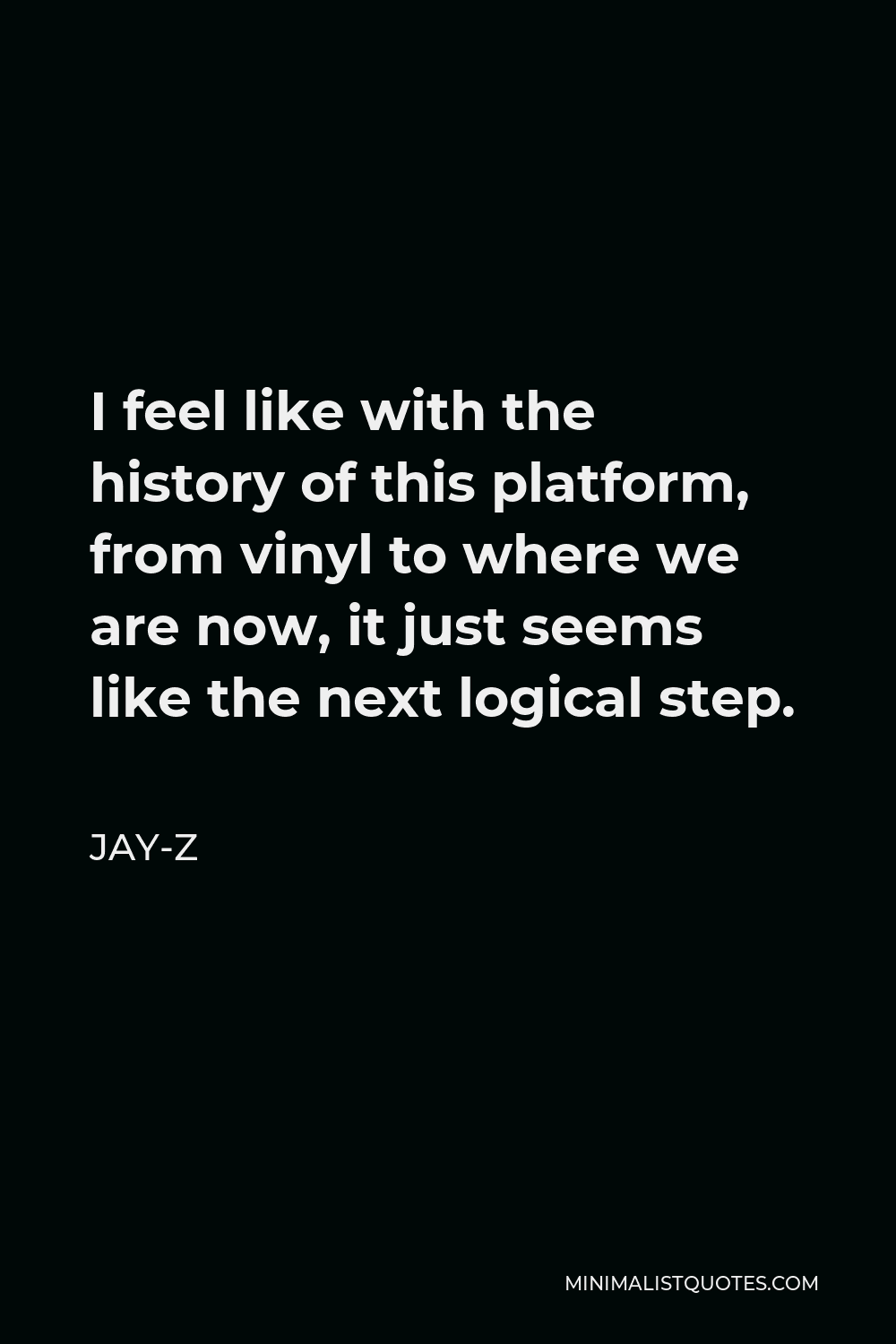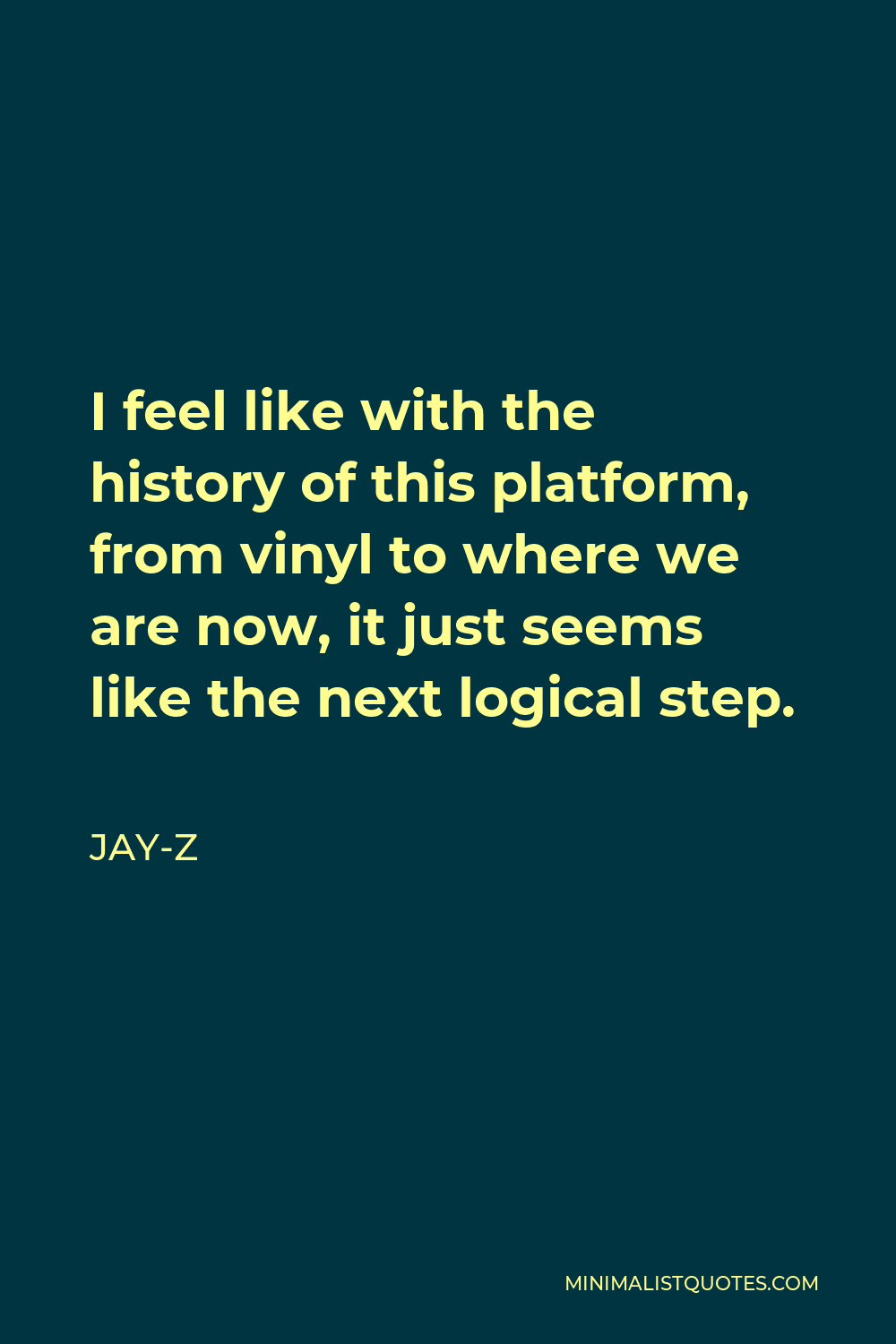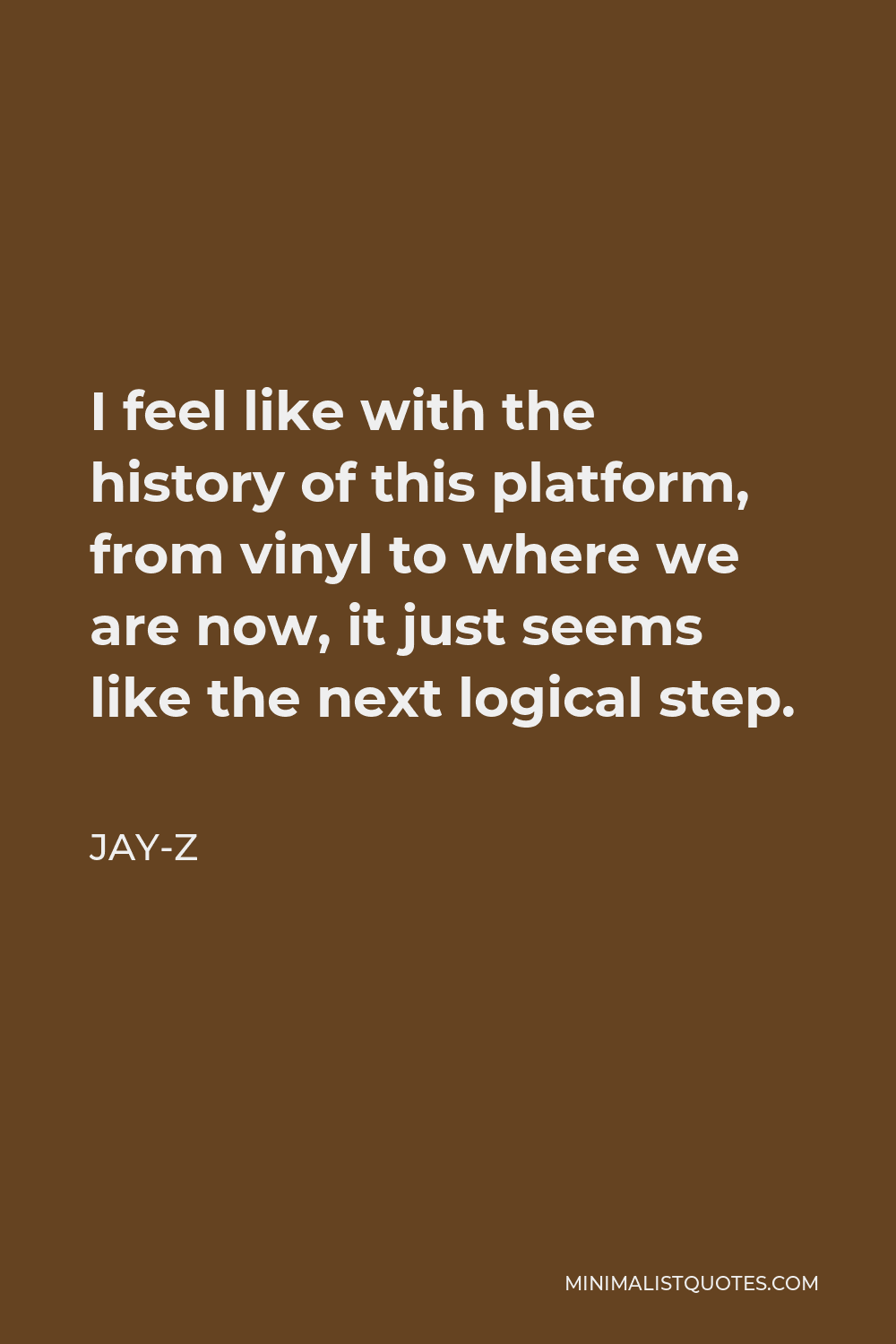I feel like with the history of this platform, from vinyl to where we are now, it just seems like the next logical step.
JAY-ZI feel like with the history of this platform, from vinyl to where we are now, it just seems like the next logical step.
More Jay-Z Quotes
-





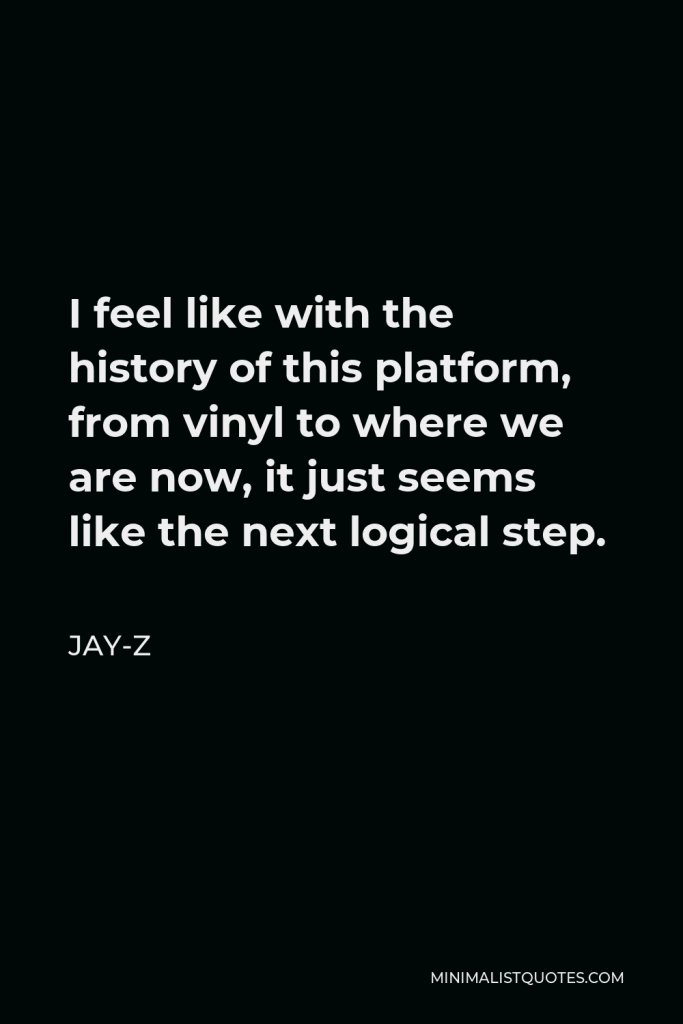

-





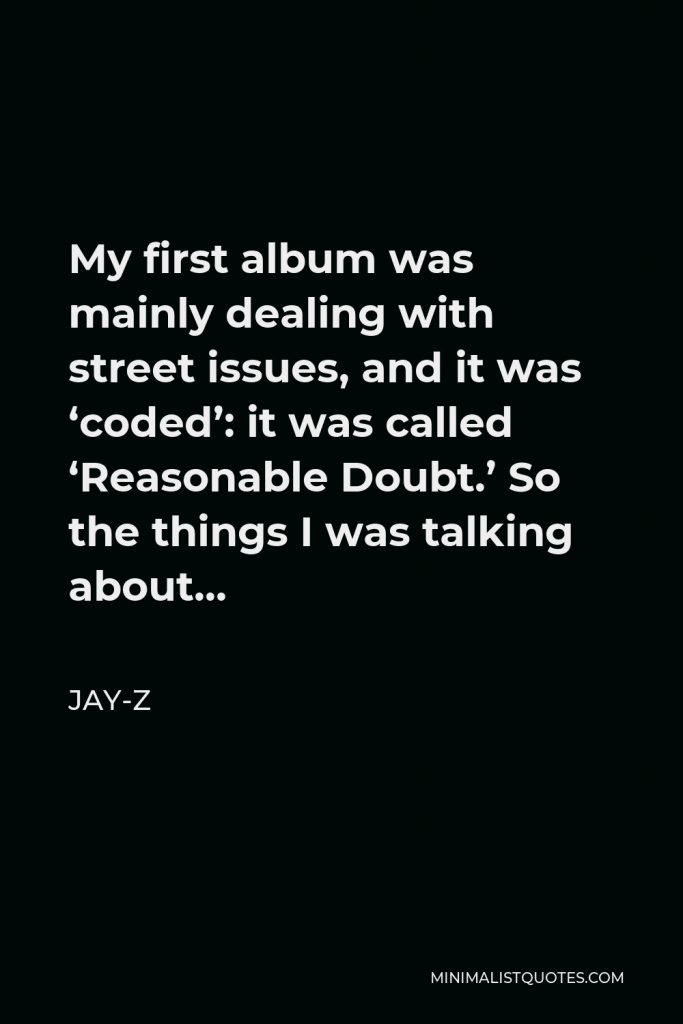

My first album was mainly dealing with street issues, and it was ‘coded’: it was called ‘Reasonable Doubt.’ So the things I was talking about…
JAY-Z -





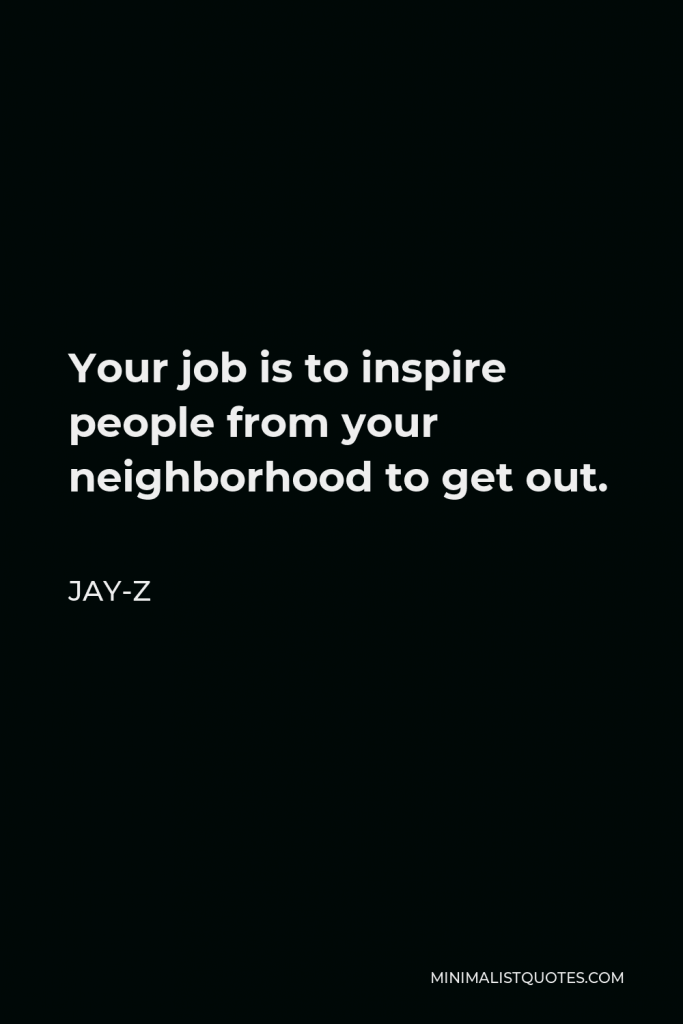

Your job is to inspire people from your neighborhood to get out.
JAY-Z -





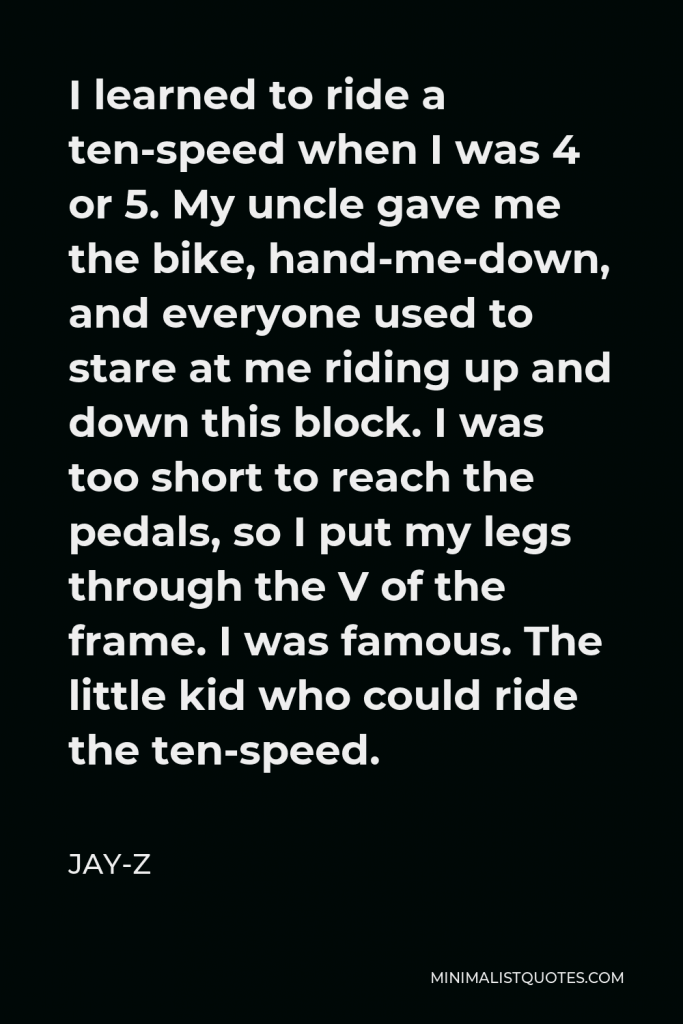

I learned to ride a ten-speed when I was 4 or 5. My uncle gave me the bike, hand-me-down, and everyone used to stare at me riding up and down this block. I was too short to reach the pedals, so I put my legs through the V of the frame. I was famous. The little kid who could ride the ten-speed.
JAY-Z -





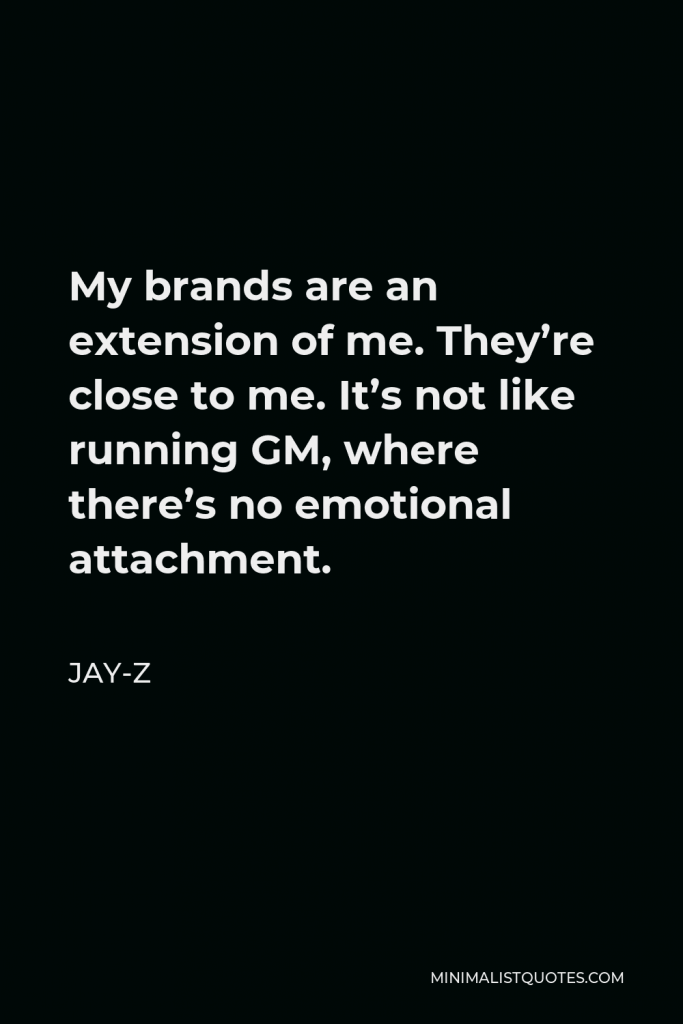

My brands are an extension of me. They’re close to me. It’s not like running GM, where there’s no emotional attachment.
JAY-Z -





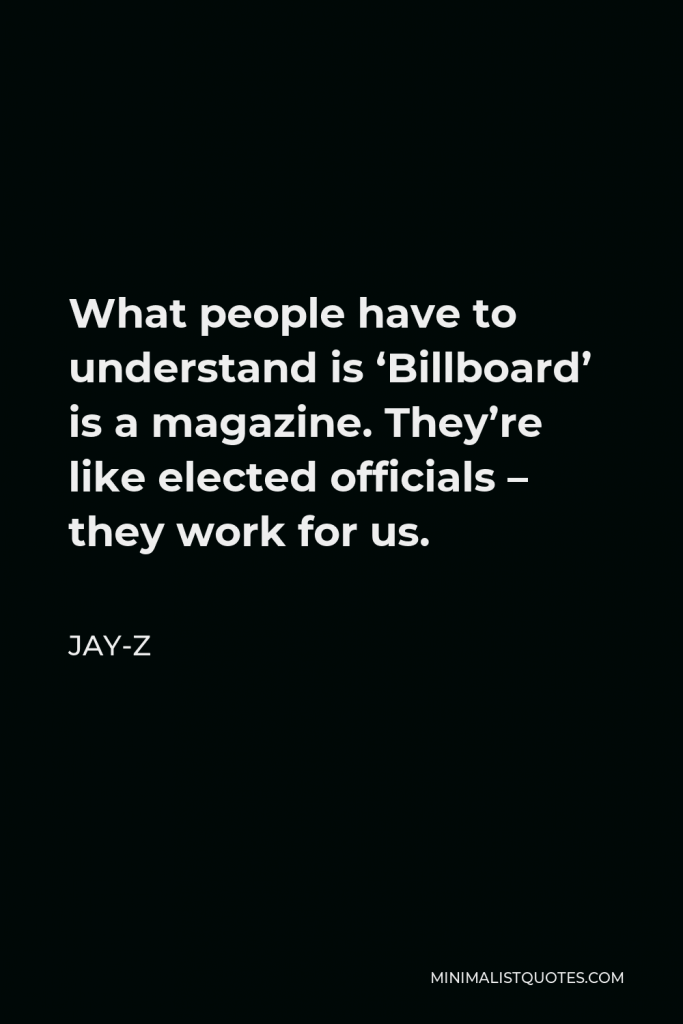

What people have to understand is ‘Billboard’ is a magazine. They’re like elected officials – they work for us.
JAY-Z -





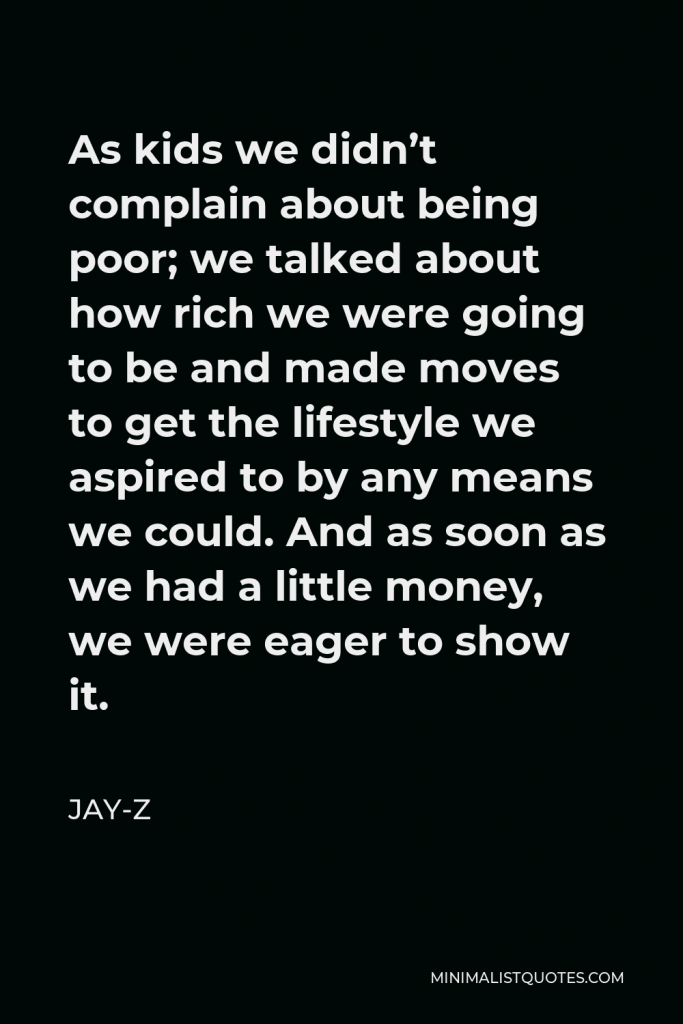

As kids, we didn’t complain about being poor; we talked about how rich we were going to be and made moves to get the lifestyle we aspired to by any means we could.
JAY-Z -





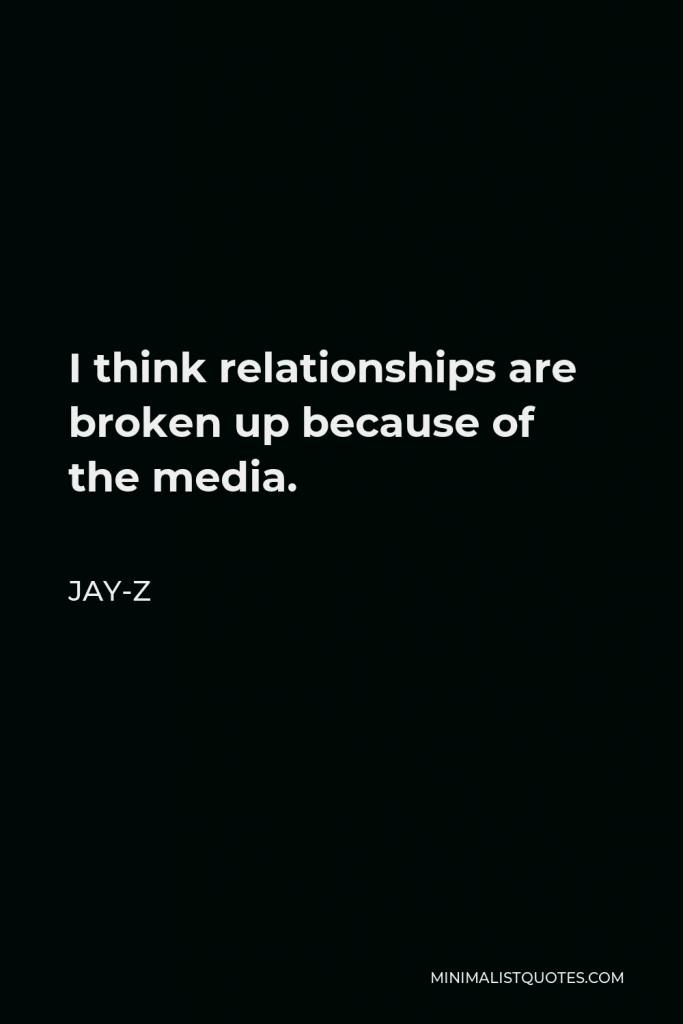

I think relationships are broken up because of the media.
JAY-Z -





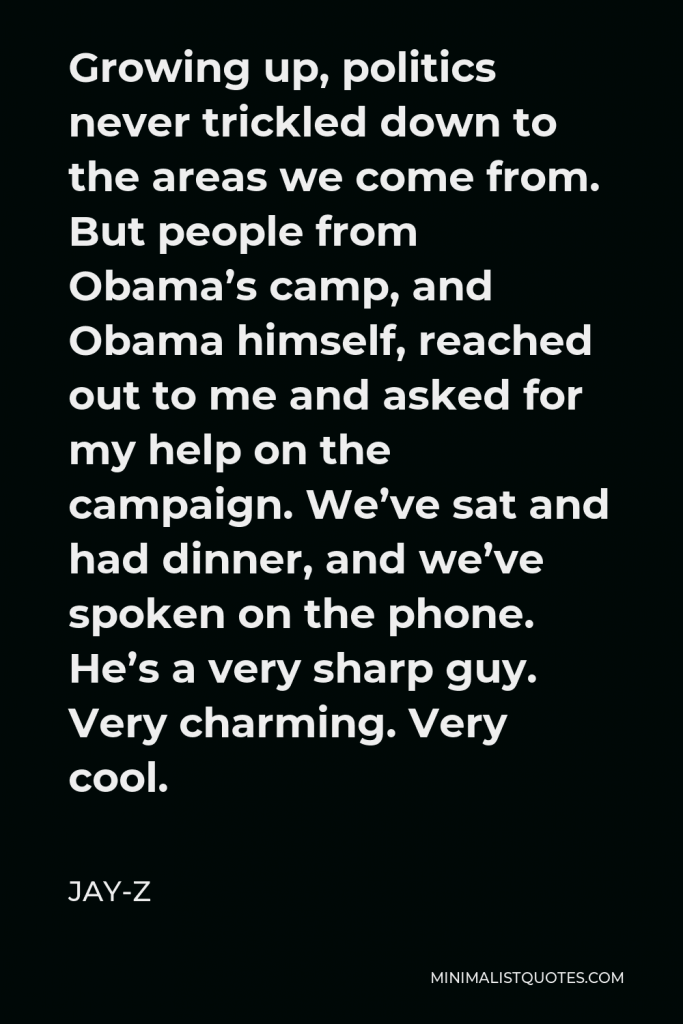

Growing up, politics never trickled down to the areas we come from. But people from Obama’s camp, and Obama himself, reached out to me and asked for my help on the campaign. We’ve sat and had dinner, and we’ve spoken on the phone. He’s a very sharp guy. Very charming. Very cool.
JAY-Z -





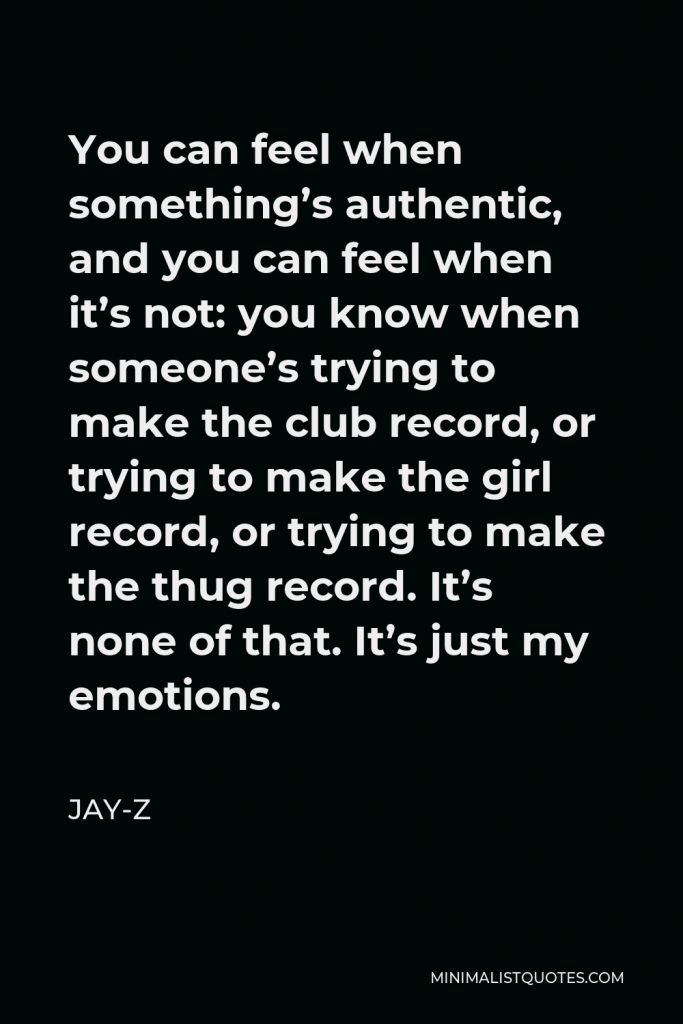

You can feel when something’s authentic, and you can feel when it’s not: you know when someone’s trying to make the club record, or trying to make the girl record, or trying to make the thug record. It’s none of that. It’s just my emotions.
JAY-Z -





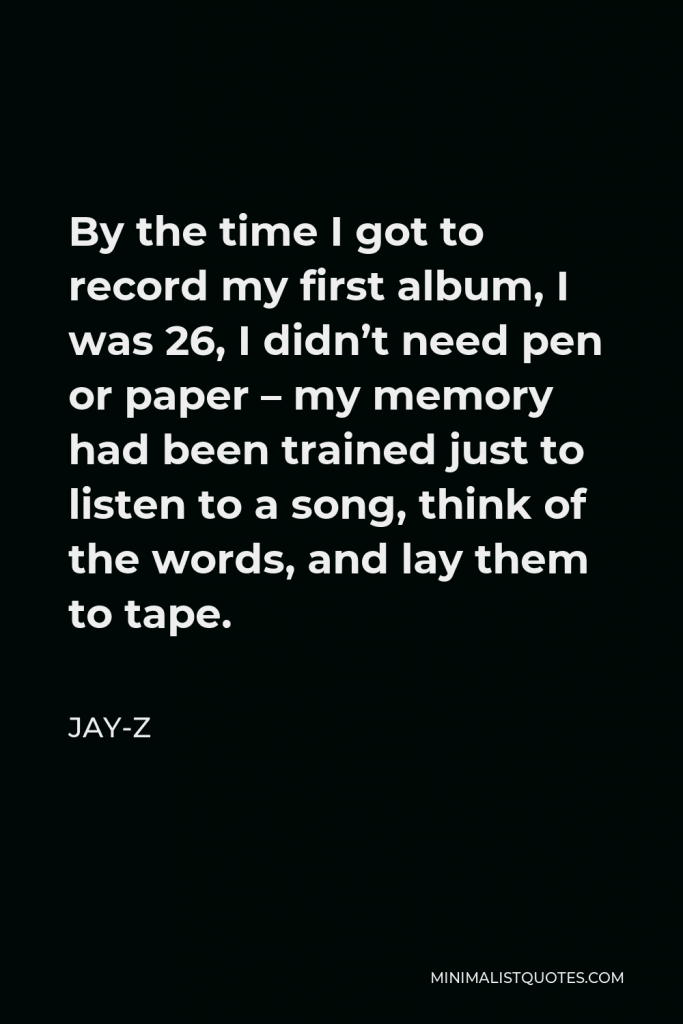

By the time I got to record my first album, I was 26, I didn’t need pen or paper – my memory had been trained just to listen to a song, think of the words, and lay them to tape.
JAY-Z -





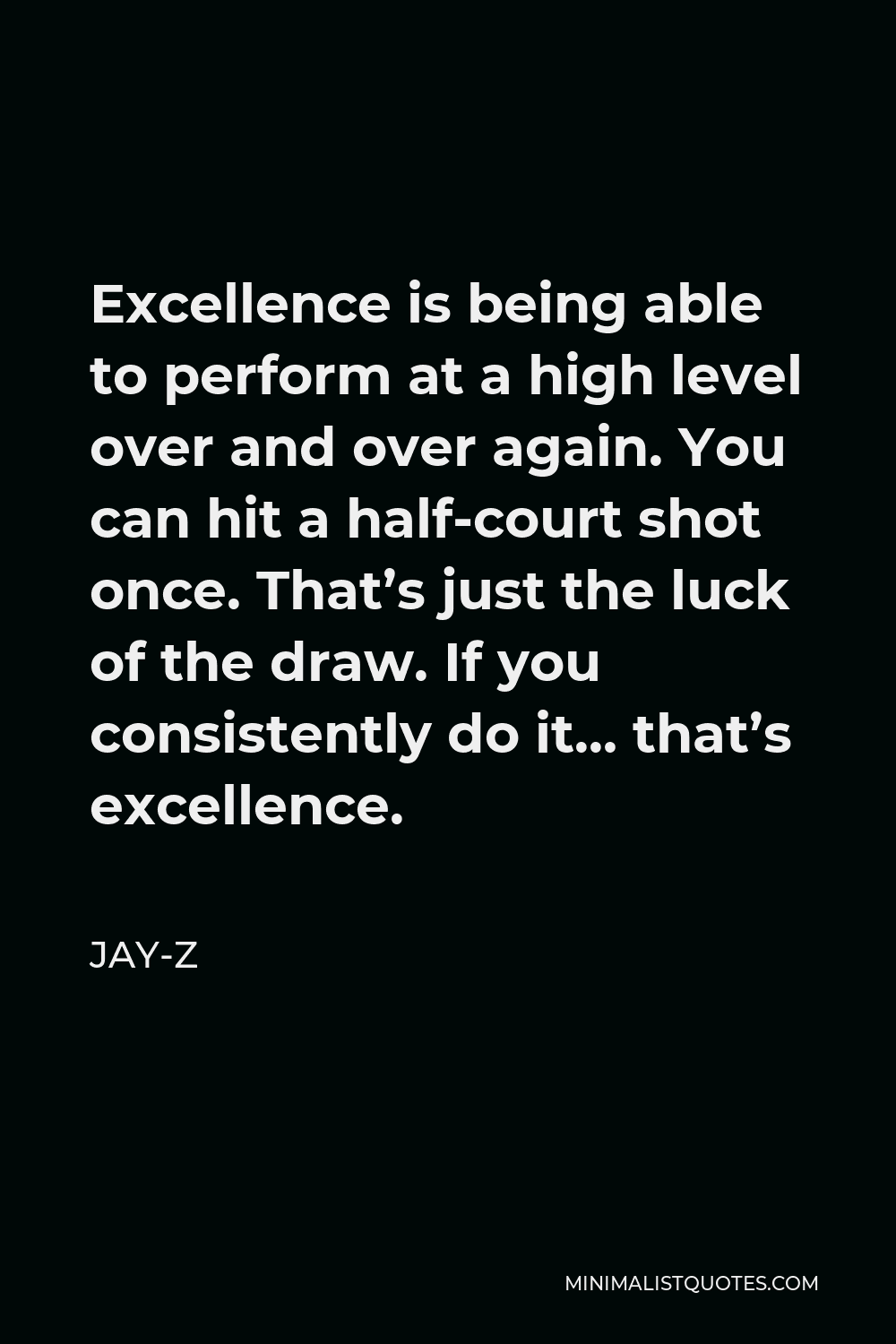
Excellence is being able to perform at a high level over and over again. You can hit a half-court shot once. That’s just the luck of the draw. If you consistently do it… that’s excellence.
JAY-Z -





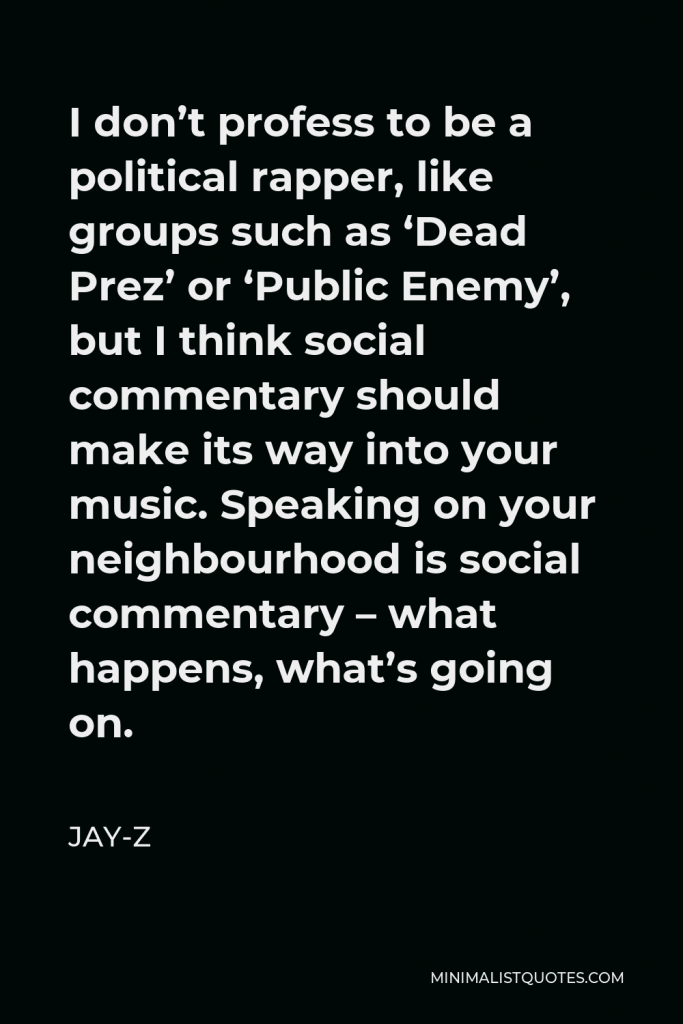

I don’t profess to be a political rapper, like groups such as ‘Dead Prez’ or ‘Public Enemy’, but I think social commentary should make its way into your music. Speaking on your neighbourhood is social commentary – what happens, what’s going on.
JAY-Z -





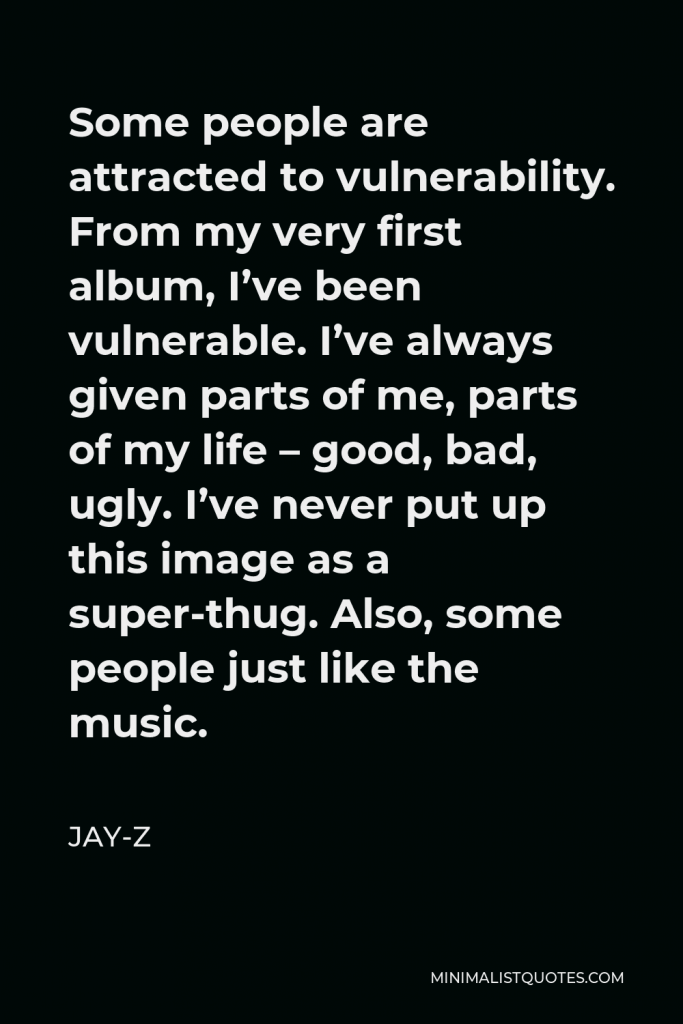

Some people are attracted to vulnerability. From my very first album, I’ve been vulnerable. I’ve always given parts of me, parts of my life – good, bad, ugly. I’ve never put up this image as a super-thug. Also, some people just like the music.
JAY-Z -





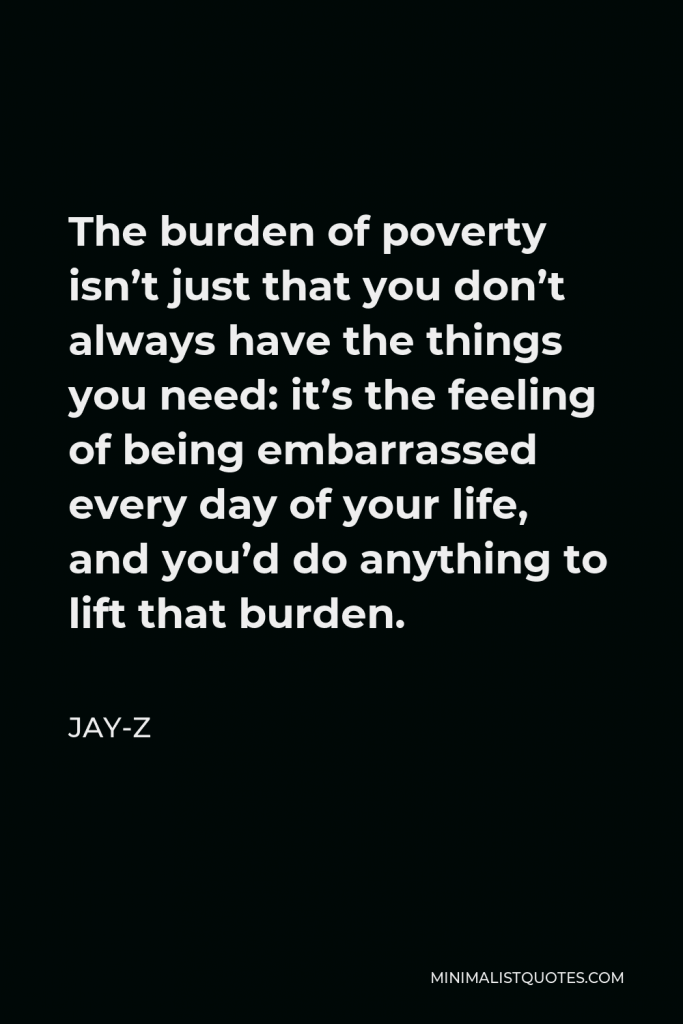

The burden of poverty isn’t just that you don’t always have the things you need, it’s the feeling of being embarrassed every day of your life, and you’d do anything to lift that burden.
JAY-Z -





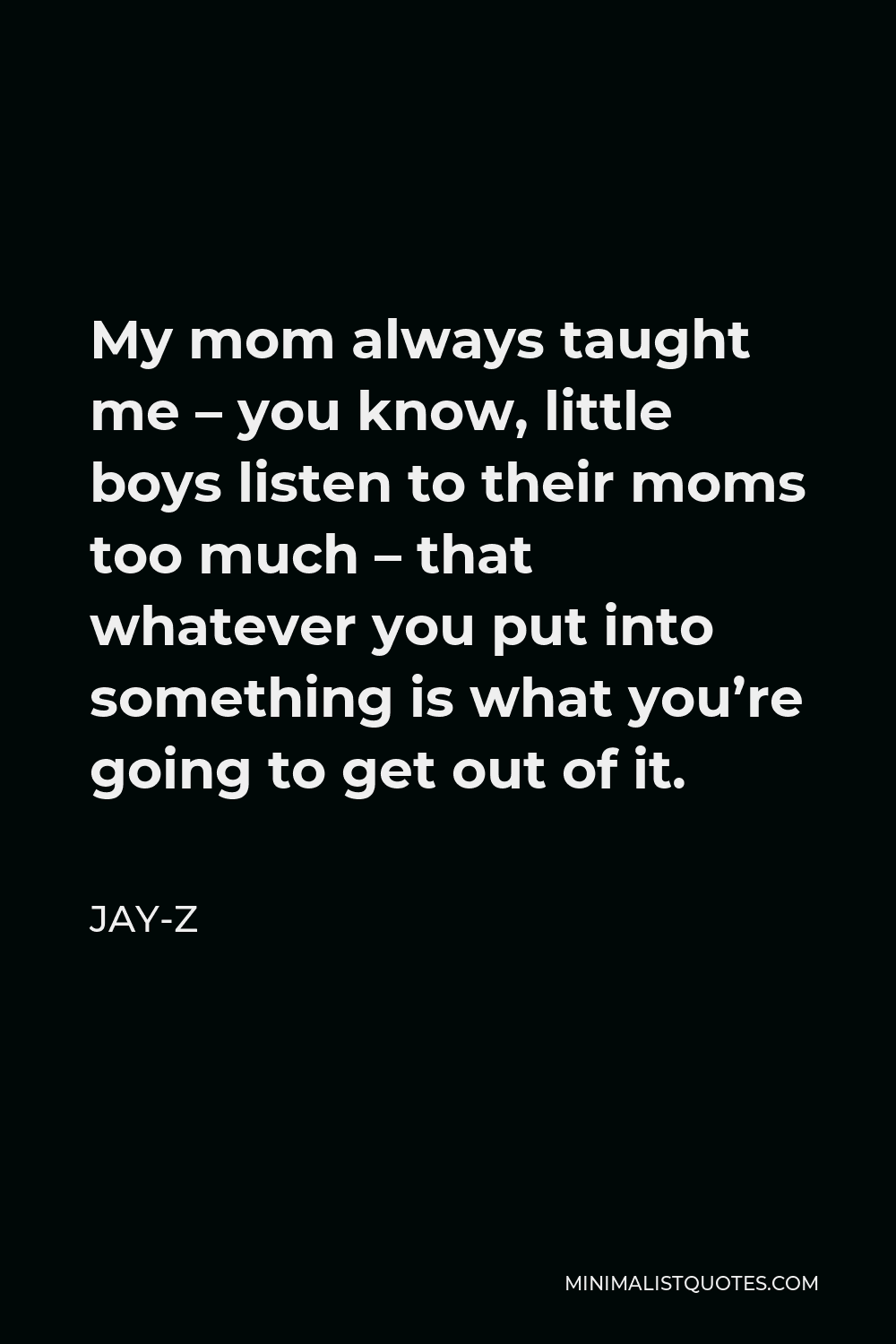
My mom always taught me – you know, little boys listen to their moms too much – that whatever you put into something is what you’re going to get out of it.
JAY-Z
